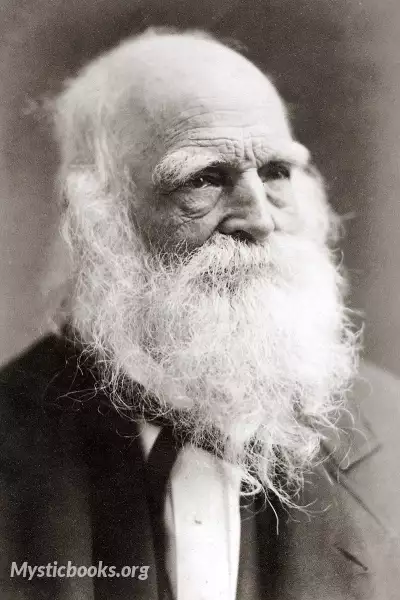
Timeline
Title
Country/Nationality
William Cullen Bryant
William Cullen Bryant was an American romantic poet, journalist, and long-time editor of the New York Evening Post. Born in Massachusetts, he started his career as a lawyer but showed an interest in poetry early in his life. He soon relocated to New York and took up work as an editor at various newspapers. He became one of the most significant poets in early literary America and has been grouped among the fireside poets for his accessible, popular poetry.
Bryant was born on November 3, 1794, in a log cabin near Cummington, Massachusetts; the home of his birth is today marked with a plaque. He was the second son of Peter Bryant (b. Aug. 12, 1767, d. Mar. 20, 1820), a doctor and later a state legislator, and Sarah Snell (b. Dec. 4, 1768, d. May 6, 1847). The genealogy of his mother traces back to passengers on the Mayflower: John Alden (b. 1599, d. 1687), his wife Priscilla Mullins and her parents William and Alice Mullins. The story of the romance between John and Priscilla is the subject of a famous narrative poem by Henry Wadsworth Longfellow The Courtship of Miles Standish.
He was also the nephew of Charity Bryant, a Vermont seamstress who is the subject of Rachel Hope Cleves's 2014 book Charity and Sylvia: A Same-Sex Marriage in Early America. William Cullen Bryant described their relationship: "If I were permitted to draw the veil of private life, I would briefly give you the singular, and to me interesting, story of two maiden ladies who dwell in this valley. I would tell you how, in their youthful days, they took each other as companions for life, and how this union, no less sacred to them than the tie of marriage, has subsisted, in uninterrupted harmony, for more than forty years." Charity and Sylvia Drake are buried together at Weybridge Hill Cemetery, Weybridge, Vermont.
Bryant edited the very successful Picturesque America, which was published between 1872 and 1874. This two-volume set was lavishly illustrated and described scenic places in the United States and Canada.[14] In his last decade, Bryant shifted from writing his own poetry to a blank verse translation of Homer's works. He assiduously worked on the Iliad and The Odyssey from 1871 to 1874. He is also remembered as one of the principal authorities on homeopathy and as a hymnist for the Unitarian Church, both legacies of his father's influence on him.
In 1843, Bryant bought a house he christened Cedarmere (for the cedar trees around the pond, or "mere") in Roslyn Harbor, on Long Island. In 1865, he bought the farmhouse in Cummington, where he'd grown up, and summered there annually until his death. He made substantial improvements to the houses at both properties. He was known for his attention to trees on his land, and later in life he expressed concerns that deforestation in the United States would prove disastrous for American agriculture.
Bryant died in 1878 of complications from an accidental fall suffered after participating in a Central Park ceremony to honor Italian patriot Giuseppe Mazzini. He is buried at Roslyn Cemetery in Roslyn, New York.
Books by William Cullen Bryant
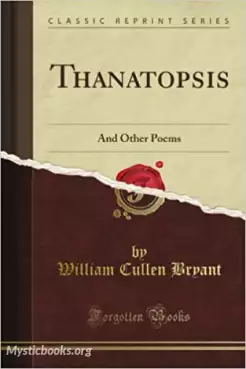
Thanatopsis
"Thanatopsis" is an early poem by the American poet William Cullen Bryant. Meaning 'a consideration of death', the word is derived from the Greek 'thanatos' (death) and 'opsis' (view, sight).
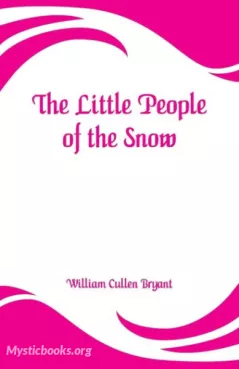
The Little People of the Snow
In the enchanting realm of winter's embrace, where snowflakes dance and frost paints the landscape, lies a hidden world teeming with wonder. Enter "The Little People of the Snow," a mesmerizing tale by the renowned poet William Cullen Bryant. Within...
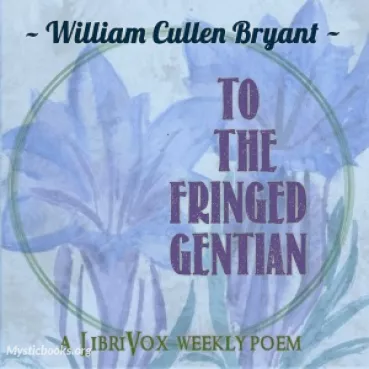
To The Fringed Gentian
In the late autumn, when other flowers have faded, the fringed gentian blooms, a symbol of hope and resilience. William Cullen Bryant's beloved poem "To the Fringed Gentian" is a celebration of this delicate flower and the beauty of the natural worl...
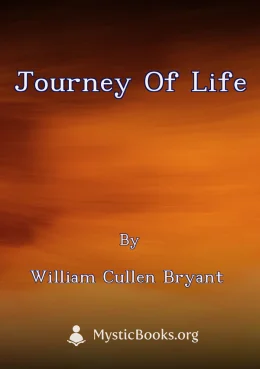
Journey of Life
William Cullen Bryant's *The Journey of Life* is a contemplative poem that explores the themes of life, death, and the passage of time. Written in a thoughtful and meditative style, it reflects on the beauty and fragility of existence, and the inevit...
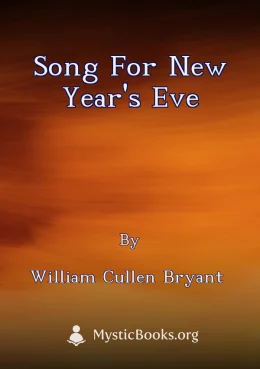
Song For New Year's Eve
''A Song for New Year's Eve'' is a poem by William Cullen Bryant, written in 1859. It reflects on the passage of time, the inevitability of death, and the hope for a better future. The poem is written in a contemplative and melancholic tone, yet it u...
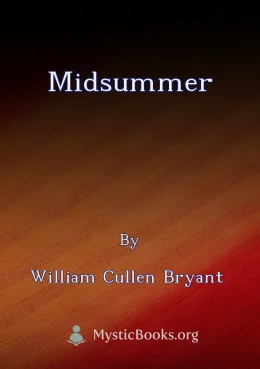
Midsummer
Midsummer is a poem by William Cullen Bryant that celebrates the beauty and tranquility of the summer season. The poem describes the sights, sounds, and smells of a midsummer day, and reflects on the fleeting nature of time. Bryant's language is evoc...
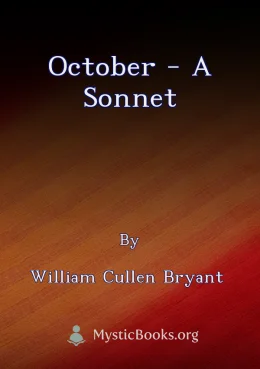
October - A Sonnet
This book presents William Cullen Bryant's sonnet 'October,' a poignant reflection on the beauty and melancholy of the autumn season. It showcases Bryant's mastery of language and his keen observation of nature, capturing the essence of this transfor...
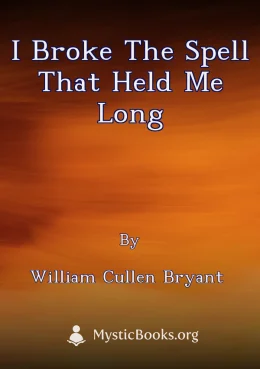
I Broke The Spell That Held Me Long
This collection of poems by William Cullen Bryant, a prominent figure in early American literature, showcases his mastery of the Romantic style. Bryant's work is known for its themes of nature, love, and freedom, often expressed with a sense of hope...